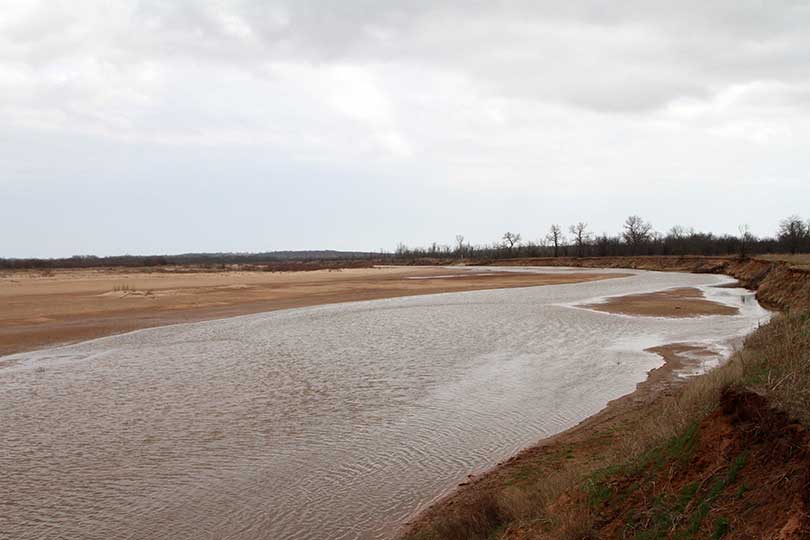By Jessica Domel
News Editor
The Bureau of Land Management (BLM) will soon have limited access to portions of Red River landowners’ private property following a recent ruling by U.S. District Court Judge Reed O’Connor.
O’Connor’s recent ruling was a mixed bag for landowners, according to the Wichita Falls Times Record News.
The ruling allows the defendants—BLM and other federal officials—access to the northern boundary of disputed land along the Red River as part of the discovery phase of the lawsuit.
The access comes with a specific set of guidelines set to protect the private property rights of the landowners suing BLM.
“This case revolves around private property rights,” Texas Farm Bureau Vice President Michael White said. “The Bureau of Land Management is claiming this land as its own even though it’s been privately held and paid for. We’re thankful the judge is respecting these landowners’ rights.”
BLM requested a protected order in the case that was denied by the judge.
The bureau also asked that surveyors and federal law enforcement be allowed access to all property related to the case.
The judge ruled the BLM may access the northern boundaries of the properties in question through private property if they notify the landowners within three days and adhere to a designated route.
BLM alleges the land in question, which is along the Red River, is federal property because it lies between the Texas and Oklahoma boundaries. It involves a long-standing dispute regarding the movement of the river and where the clear boundaries lie.
Texas landowners maintain they’ve paid for their land and its taxes for years, in some cases decades, and it is not the property of the federal government.
“This is another example of federal agency overreach by our current administration,” said Regan Beck, director of Government Affairs for Texas Farm Bureau. “Texas Farm Bureau has been working to address this issue at all levels—with the federal agency, in Congress—and is monitoring for possibly filing an amicus brief as well.”
The landowners are joined in their case by the state of Texas, the General Land Office, Wichita, Clay and Wilbarger counties, as well as the Clay County Sheriff.
The lawsuit is set for trial in July 2017.


Give them an arm and soon it will be the entire body. Won’t be long and they’ll be in everyone’s homes.
So a river is NOT a boundary ? As we were taught in public school. Sounds like a can of worms that we are
all going to have to pay of, and the lawyers cash the checks.
I heard that Mrs. Braune.Right on the mark. It is absolutely unbelieveable at the land grabs for roads,utility row’s,wind turbines and the list goes on. It is greed just like all of these builders and developers taking away the farm,ranch,and wildlands just to build homes,malls,businesses and the list goes on. Very,very sad and disturbing to me and I am sure many others.